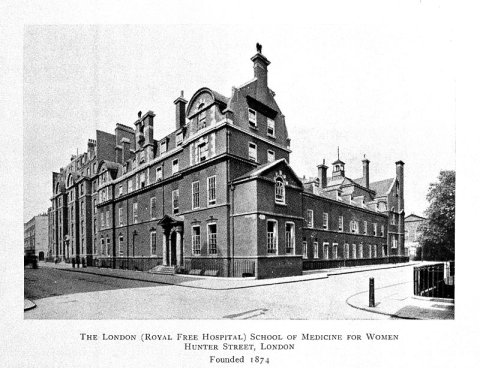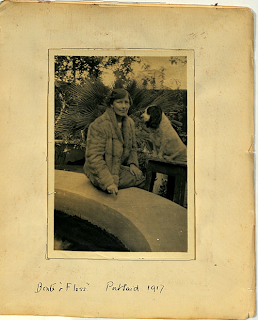International Women's Day 2020 - celebrating pioneering women from the past to the present

For International Women’s Day, we decided to look back on the history of the Society and celebrate early women pioneers in tropical medicine and global health.
While women practiced medicine and surgery as early as ancient Egypt (paintings in tombs and temples of ancient Egypt show them performing surgical procedures), it wasn’t until the late 19th century that women were able to acquire a medical education. [1]
Sophia Jex-Blake founded the London School of Medicine for Women in 1874 [2], while still actively lobbying for a change in law which prohibited women to study alongside men. Eventually, parliamentary legislation in 1876 opened medical and university education for women and by the end of the 19th century, women could study medicine at virtually all British universities. [1]
Women at RSTMH - from day one
The Royal Society of Tropical Medicine and Hygiene was founded in 1907. Within the first year, monthly meetings were held with up to 40 fellows and visitors in attendance, including one Miss Grace MacKinnon LRCP, who became the 53rd Fellow of the Society in June 1907. While not much is known about Miss MacKinnon, records show that she took the triple examination in July 1889 at the Royal Colleges of Physicians and Surgeons, Edinburgh and Faculty of Physicians and Surgeons, Glasgow, qualifying as a Licenciate, Royal College of Physicians (LRCP) [3].
The 1889 exam documentation lists her as a resident of Lerwick, Shetland Islands, while her 1907 membership at the RSTMH notes her address to be in Patna, North Eastern India, where she was the Lady Superintendent at the Duchess of Teck Hospital. This is where in 1906 she was awarded the Kaisar-i-Hind Medal for Public Service in India of the Second Class by the Viceroy and Governor-General [4].
Within a month of Miss MacKinnon’s appointment, Miss Christina Wilson MB also became a Fellow. Based in Mylapore, Madras, India, she attended meetings thereafter, but we found no further details about her activities.
Bonté Elgood

Then in early 1908, Mrs Bonté Elgood (nee Amos) became a Fellow at the Society.
Bonté was born in 1874 in London. In 1880 her family moved to Australia for her father’s health. Finding the country uncongenial, they set out to return to England, but when they reached Egypt, her father Sheldon Amos was invited by Lord Dufferin, British adviser to the Porte, to be his legal adviser, and they remained in the country. [5]
Bonté did her clinical studies at the London School of Medicine for Women at the Royal Free Hospital and was taught by Elizabeth Garrett Anderson. She qualified in 1900 and returned to Cairo the following year. She was the first woman to be appointed for service by the Egyptian Government and worked at Port Said as medical officer to the Quarantine Board of Egypt responsible for the health of pilgrims from Mecca. Over the two years she worked at the Quarantine hospitals at El-Tor, she observed many infectious diseases, including dysentry on which she wrote several papers. She also set up in private practice.
In 1911 she founded a training school for Egyptian midwives and went on to develop a scheme to send Egyptian women for medical training in London. It began as administration of three schools with 600 female pupils but grew to 106 schools with 20,000 students by 1923. The training school later developed into a hospital with a school for nurses as well as midwives attached to it and she was an active member of the board until 1956, when she was made to leave Egypt during the Suez crisis. She died in Chelsea aged 86 in 1960.
Bonté was awarded the OBE and the CBE, was the first woman ever to earn an honour for public service by an official Egyptian agency when she received the Order of the Nile Third Class. She received the Médaille de la Reconnaissance Francaise 3me Class for her services to Allied troops in Cairo and throughout Europe. She also received a silver medal from the Union des Femmes de France, and a Red Cross Medal for distinguished war service in 1946. [5]
From present to the future
Fast forward a hundred years and we see a very different picture. Women in the field of tropical medicine and global health are thriving and breaking more and more boundaries. Let’s hear from women in the field who have been honoured by medals, completed pioneering work on leprosy, received our grants and were supported in their early careers through RSTMH. We are excited to see a much more even membership today, with a close to 50/50 split, including men, women and non-binary / or gender non-disclosed persons as well among early career members.
References
Women in Surgery. Retrieved from https://www.rcseng.ac.uk/careers-in-surgery/women-in-surgery/
Undiscovered Scotland. Retrieved from https://www.undiscoveredscotland.co.uk/usbiography/j/sophiajexblake.html
Medical News. (1889). The British Medical Journal, 2(1491), 227-229. Retrieved from www.jstor.org/stable/20220465
Service Notices. (1906, August). The Indian Medical Gazette, p. 344.
Bonté Elgood: pioneering woman doctor in Egypt. (n.d.). Retrieved from http://blog.wellcomelibrary.org/2012/07/newly-available-the-papers-of-bo...